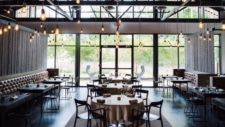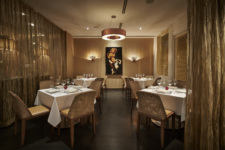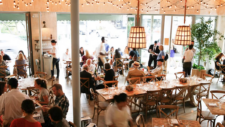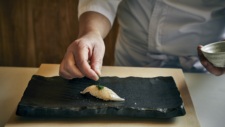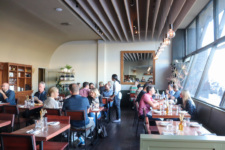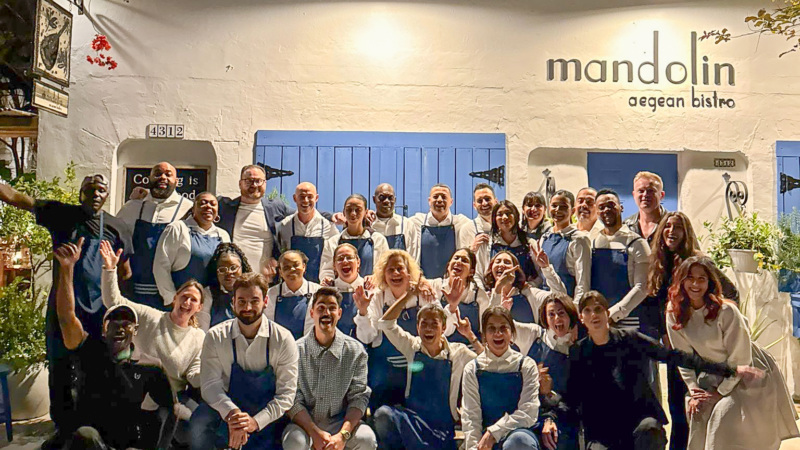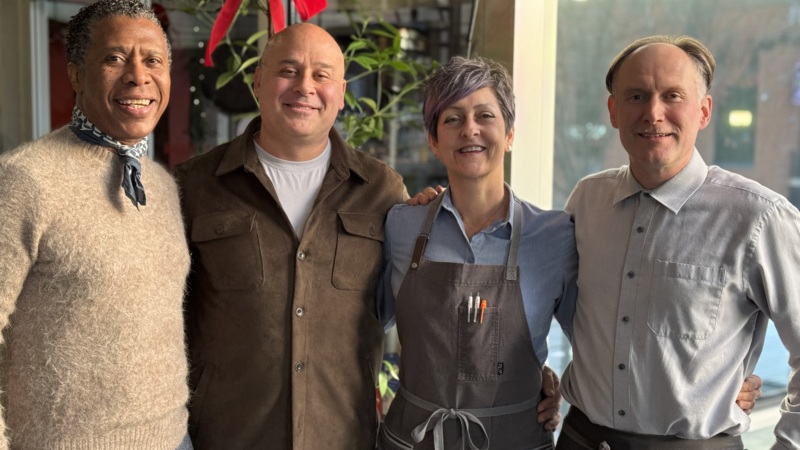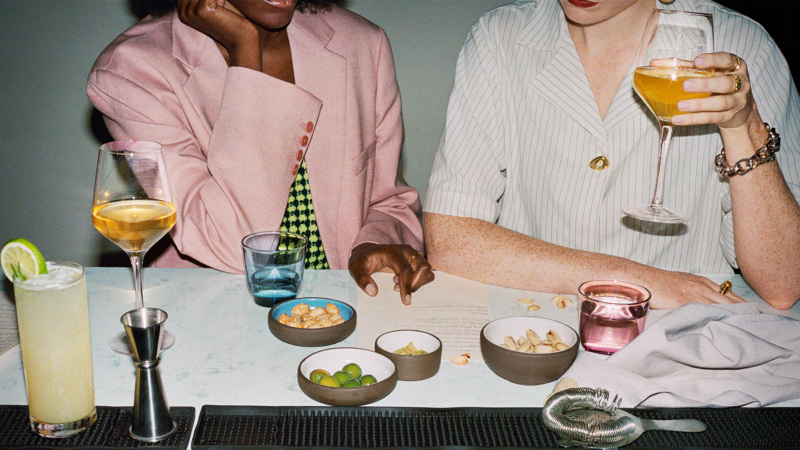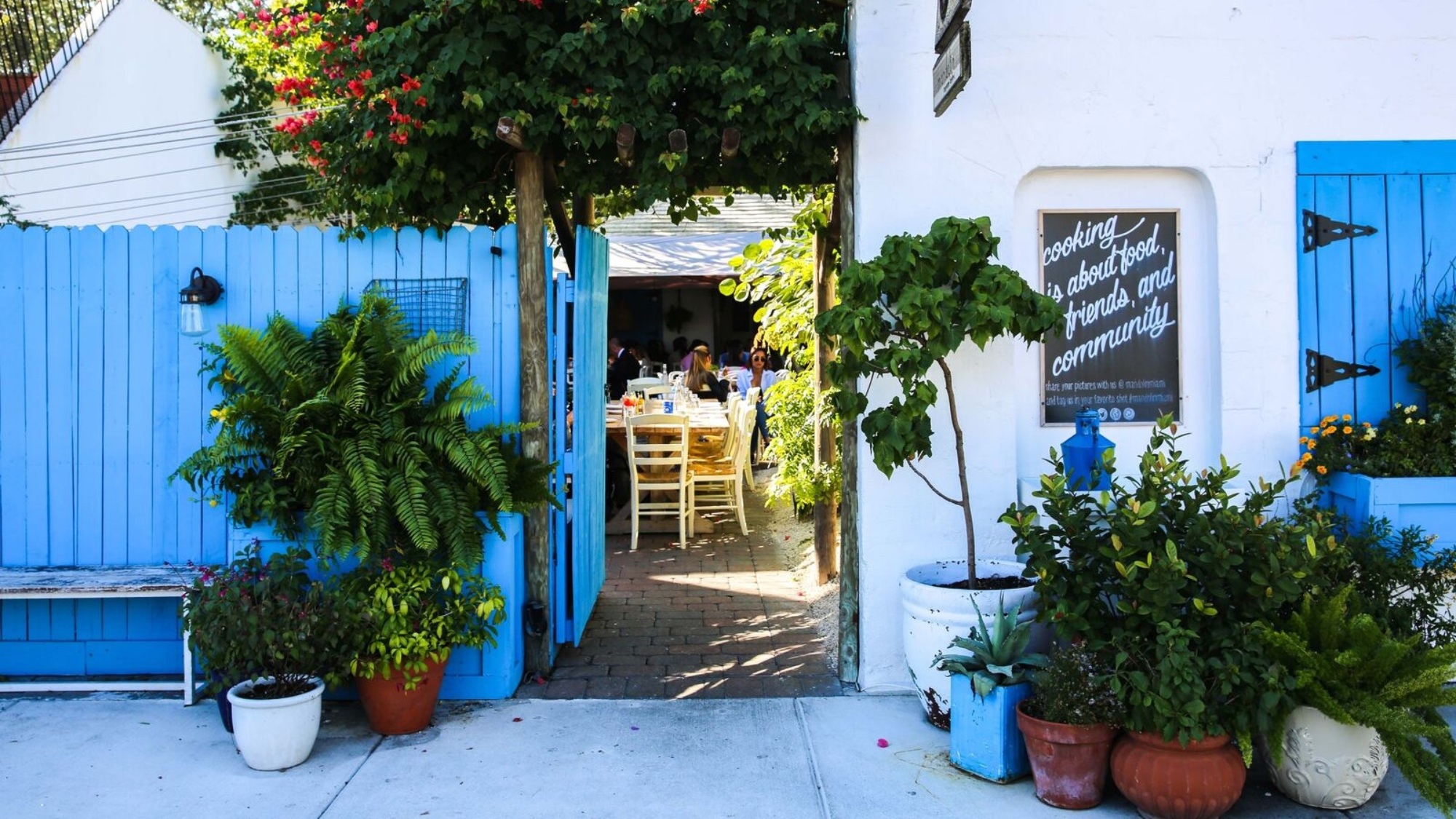
Margot Eisbart of Mandolin on Creating Community-Driven Word of Mouth
Published:
Resy has grown a lot in the past 10 years, and we’re celebrating by shining a light on some of the restaurateurs who grew alongside us in our earliest days. In this special series 10 Years of Resy Restaurants, six star players from across the U.S. shared what they’ve learned over the years, how their restaurants have evolved, and much more.
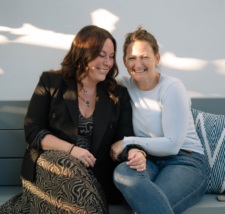
Restaurant: Mandolin Aegean Bistro Miami
Year Joined Resy: 2020
Founded by husband and wife duo Ahmet Erkaya and Anastasia Koutsioukis, Mandolin Aegean Bistro Miami began as a cozy 30-seat establishment in a quiet neighborhood of central Miami. Today, the restaurant accommodates around 200 guests and books out weeks in advance. It has also received the Bib Gourmand award from Michelin for the past three consecutive years.
Considering that the business has expanded so considerably over the past 15 years, we were curious to learn how Mandolin has held onto that core essence of what the founders call “Mediterranean hospitality.” We spoke to Brand & Operations Manager Margot Eisbart about what has made Mandolin such a success and how the team has managed to keep the heart and soul of Mandolin alive.
[Editor’s Note: The following has been edited for clarity and length.]
Resy: What makes Mandolin different from the other restaurants you’ve worked at?
Margot Eisbart: Right before I joined Mandolin in late 2017, I was actually ready to leave the Miami dining scene; I felt stuck. I wanted to meet new people and get a new experience so that I could further myself. Mandolin was my last hope of staying in the city.
It’s definitely the most special place I’ve ever worked. I feel very attached to it. During my first few months, I felt like I really belonged somewhere. It sounds cheesy, but it was like I was coming home.
I think that also speaks to the loyalty of how long our team has been with us. We just celebrated one of our chef’s 12th anniversary here. He’s one of many who don’t see themselves leaving. So, I see Mandolin being around for many, many more years.
What is it about Mandolin’s culture that fosters such strong loyalty from staff?
So much can be said for treating your staff the same way you treat your guests. I think a lot of restaurants can learn from that. When I was in culinary school, I learned a lot about managing your team. A lot of people told me that the number one person you need to take care of is the guest. But I’ve learned that taking care of your staff is 100 times more important than taking care of the guests, because if you’re taking care of your staff, they in turn will take care of the guests.
Getting to know the staff on a personal level makes them feel so much more comfortable expressing their opinions and ideas. We move staff to different positions a lot because we see their strengths. If you come onto the team as a hostess but don’t necessarily show strength or interest in that position, we always try to look for a different position for you. And that’s also what makes Mandolin so interesting: Everyone does their job so differently and we let them show their own personality.
I’ve learned that taking care of your staff is 100 times more important than taking care of the guests, because if you’re taking care of your staff, they in turn will take care of the guests.
How does your training differ from that of other restaurants?
We do a lot of training within our team to keep things consistent as much as possible. Our training lasts for 10 days. We have a lot of things that we need everyone to be aware of, not just about the food but even the way we present the restaurant to the guests and how we work together. It takes quite a long time for someone who comes from a corporate situation or someone who has never worked in a restaurant before to understand how Mandolin works and why it works the way it does.
What sorts of marketing strategies does Mandolin employ?
Before there was the brand manager position that I hold now, Mandolin had never done any marketing. So, for most of its 15 years, Mandolin grew just by word-of-mouth, which is unheard of. We started with 30 seats, and now we have 200 seats. I think a lot of that is community-driven.
We are a community restaurant, so marketing is not such a factor as staying within the community and making sure that the staff from the restaurants around love to come to us still as well. We love to do collaborations with other Miami restaurants and chefs. Mandolin is actually where a lot of chefs come on their days off, which is awesome. I hope that never changes. We’re celebrating our 15th year in December, so we’re hoping to throw a party for the industry people who have supported us.
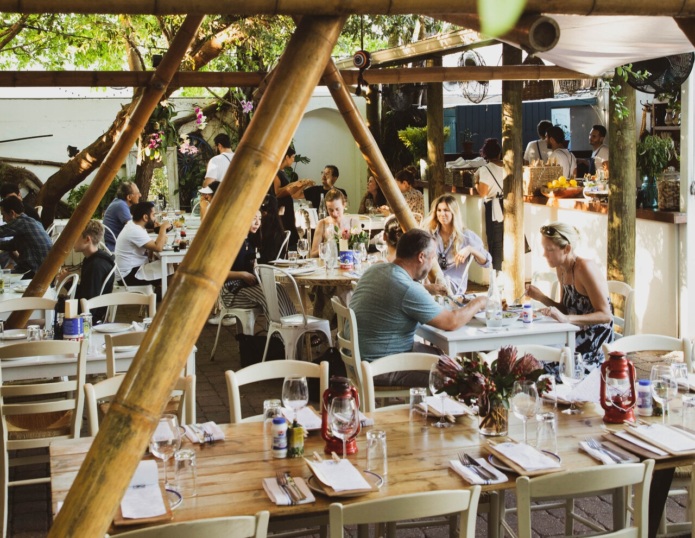
The food and hospitality and even our service style. You feel like you’re coming into a family because it is a family-run restaurant. We just treat our team and our guests like they are people we know deeply and intimately. There’s no real host stand. There’s no formality or spiel that we give at the table. We don’t announce our names. It’s as if we’re welcoming our guests into our own homes.
There’s no music outside on the patio. You’re listening to the birds. There’s something to say for that these days when everyone is on their phone or distracted in some other way. When our guests come to Mandolin, it’s like everything goes away and you can have real interaction again with whoever you’re dining with.
It sounds like you’ve developed a strong group of regulars with this philosophy.
Yeah, and they come from all over the world. You can tell which countries are on holiday. Right now, a lot of Brazilians are visiting Miami and the French will come in the winter. It’s very cool to see the different groups of people that come in. And again, it’s all word-of-mouth. We don’t do marketing across the Atlantic Ocean.
I’m glad that restaurants have become such a topic of conversation. Even just in the last 15 years, restaurants have become cool and where people want to be. It didn’t seem like that before. So, I’m grateful for the Food Network and everybody making chefs feel like rock stars. When I said I was going to culinary school, my parents were like, are you crazy? And within a year, they were like, oh, nevermind, this is actually cool.
*Opinions and views in articles shared on Resy OS are presented for the purpose of discussion and commentary on topics of interest in the restaurant industry; they should not be viewed as substitutes for advice given by professionally engaged business consultants and advisors.
